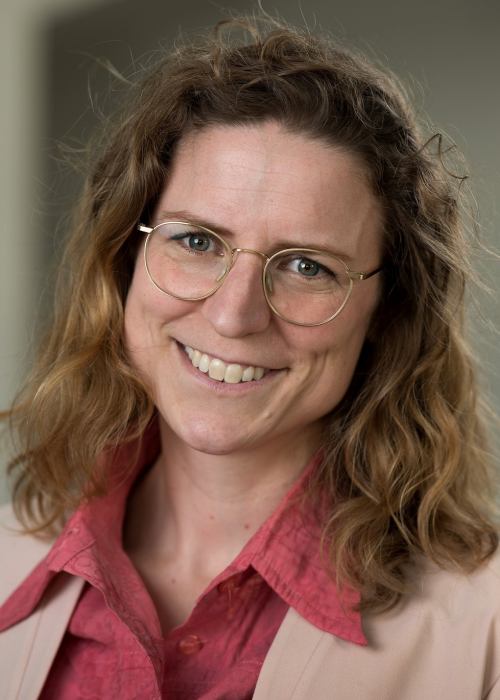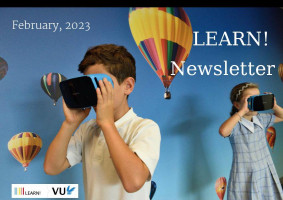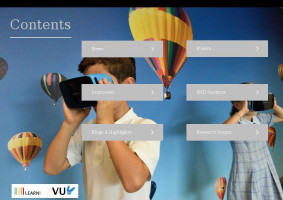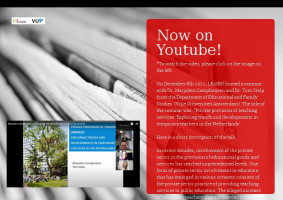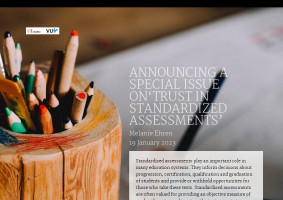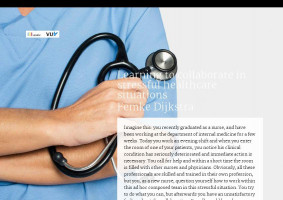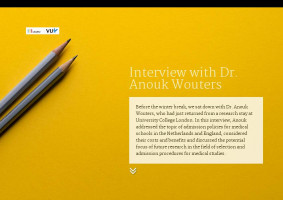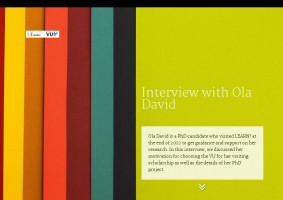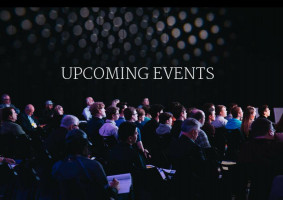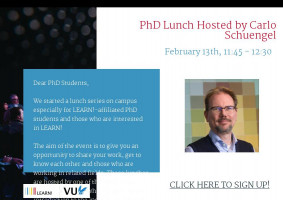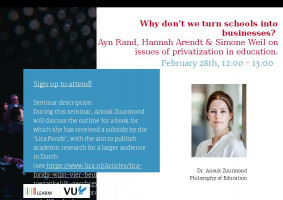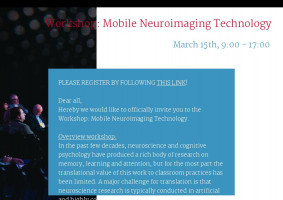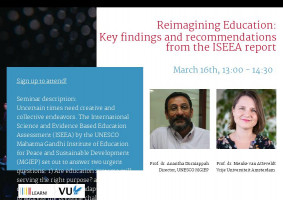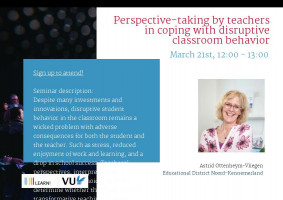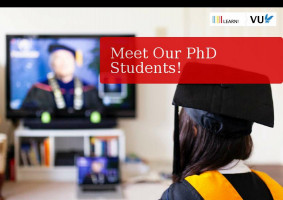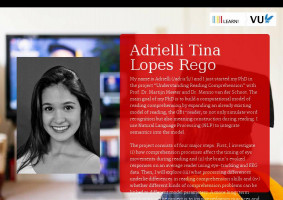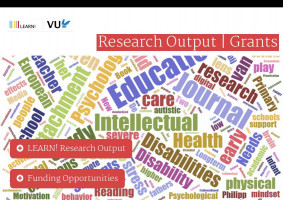Please continue reading to learn the news from the Lifelong Learning, Educational Neuroscience, Learning Sciences and Educational Governance programs.
Highlights:
- Rashmi Kusurkar awarded a consortium grant by NWO
- Anne de la Croix's project received an award by Amsterdam UMC
- Melanie Ehren joined the ICSEI board
- Elsje van Bergen received an ERC Grant
news from the Motivation for lifelong learning program:
Rashmi Kusurkar awarded a consortium grant by NWO on Advancing Equity in Academia for Innovation
Prof. Dr. Rashmi Kusurkar has been awarded a consortium grant by NWO on Advancing Equity in Academia for Innovation for the project entitled, “JEDI Now! Developing a co-creative knowledge platform and methods to achieve justice, equity, diversity and inclusion (JEDI) in higher education for Dutch with a migrant background”. The consortium consists of Prof. Dr. David Keyson, TU Delft, Prof. Dr. Maurice Crul, VU, Prof. Dr. Tahir Abbas, Leiden University, Prof. Dr. Sabine Oertelt-Prigione, Radboud UMC, Dr. K Maeve Powlick, VU, and Dr. Boya Li, Leiden University. On the one hand, this project aims to create a knowledge platform for the Netherlands on justice, equity, diversity and inclusion in order to bring together knowledge created on this topic as discrete initiatives. On the other hand, it also comprises several work packages in which pilot JEDI research projects will be conducted, e.g. on making an inventory of JEDI theoretical frameworks and concepts as well as building a JEDI research agenda for the future.
(3)(1)_w500_h700_1.jpg)
Anne de la Croix’s project of a teaching module for medical students awarded by Amsterdam UMC
Amsterdam UMC awards three annual prizes, of which one was won by the entire team working with Anne de la Croix on a teaching module for medical students in their Master programmes. The prize is awarded to a team that has worked on Integration and Harmonization of the former VUmc hospital and the former AMC hospital, as they now form the new Amsterdam UMC together. After winning a Senior Comenius Fellowship, Anne has trained 24 parents of children with a disability to become so-called ‘parent educators’ – the parents can teach (medical) students a lot about care networks, care for people with disabilities, and careers outside of the hospital walls. At the request of the doctors working with her, Anne organised parent-involvement at both UvA and VU medical programmes, creating a unique educational moment with students from both VU and UvA sitting side-by-side. The team consists of Medical Educators, clinicians, parents, and educationalists.
_w500_h700_1.jpg)
news from the educational governance, identity and diversity program:
Professor Melanie Ehren joined the ICSEI board
Melanie joined the ICSEI board for her expertise on educational governance and was elected for an initial period of one year after having supported the establishment of one of the networks and setting up online research labs as a new way of collaboration. ICSEI –the International Congress for School Effectiveness and Improvement- is an international group of researchers, policymakers and practitioners working to enhance the quality of education and support the development of more equitable education systems. The community includes colleagues from the global north and south who aim to cross the boundaries between research policy and practice to ensure that evidence and ideas move between these domains, are translated into practice and ultimately impact on outcomes. More information about ICSEI is here.
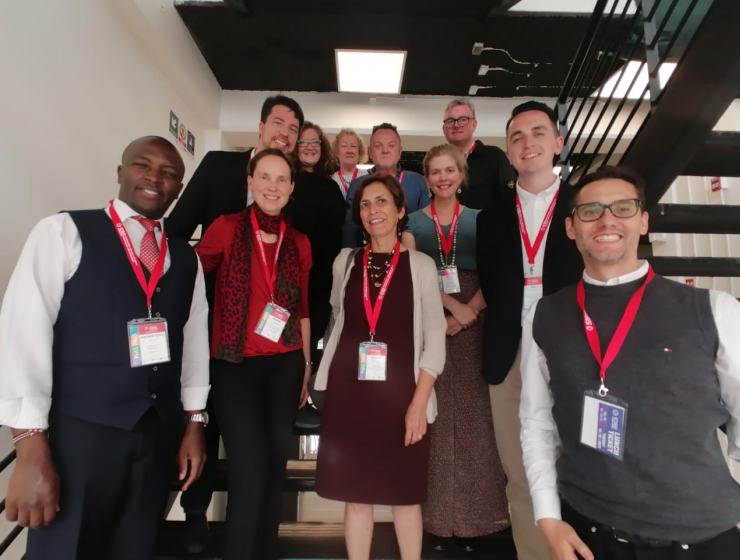
NEWS FROM THE EDUCATIONAL NEUROSCIENCE PROGRAM:
- Barbara Braams recently won the NWO Communication Award.
- Dr.Tieme Janssen and Prof. dr. Nienke van Atteveldt published an article about their newly developed growth mindset intervention. You can read the full article here.
ELSJE VAN BERGEN RECEIVED AN ERC GRANT TO CONDUCT RESEARCH INTO THE INTERPLAY OF GENES AND ENVIRONMENT IN EDUCATIONAL ACHIEVEMENT.
Dr. Elsje van Bergen has received a Starting Grant from the European Research Council (ERC) to conduct research into the interplay of genes and environment in educational achievement. The ERC awards the Starting Grants to fund emerging academic talent for five years to pursue pioneering projects. Van Bergen has been praised by the ERC committee for her ground-breaking research and creative scientific ideas, in which she combines educational sciences, psychology, and genetics.
Van Bergen will use the ERC to increase our understanding of the mechanisms underlying the cycle of educational disadvantage. “My focus is on discovering which aspects of the home environment impact children’s language, reading and math development,” says van Bergen. “Children, whose parents talk or read less with them, generally do less well at school. This is seen as cause and effect, but parents provide their children not only the home environment, but also their genes. Only if we control for inherited predisposition, or if we conduct a randomized controlled trial, can we discover the effect of the learning environment at home (...). Insight into why parents and children resemble one another will suggest ways to break this cycle. It will help policymakers target causal mechanisms so that all kids can learn and flourish”
